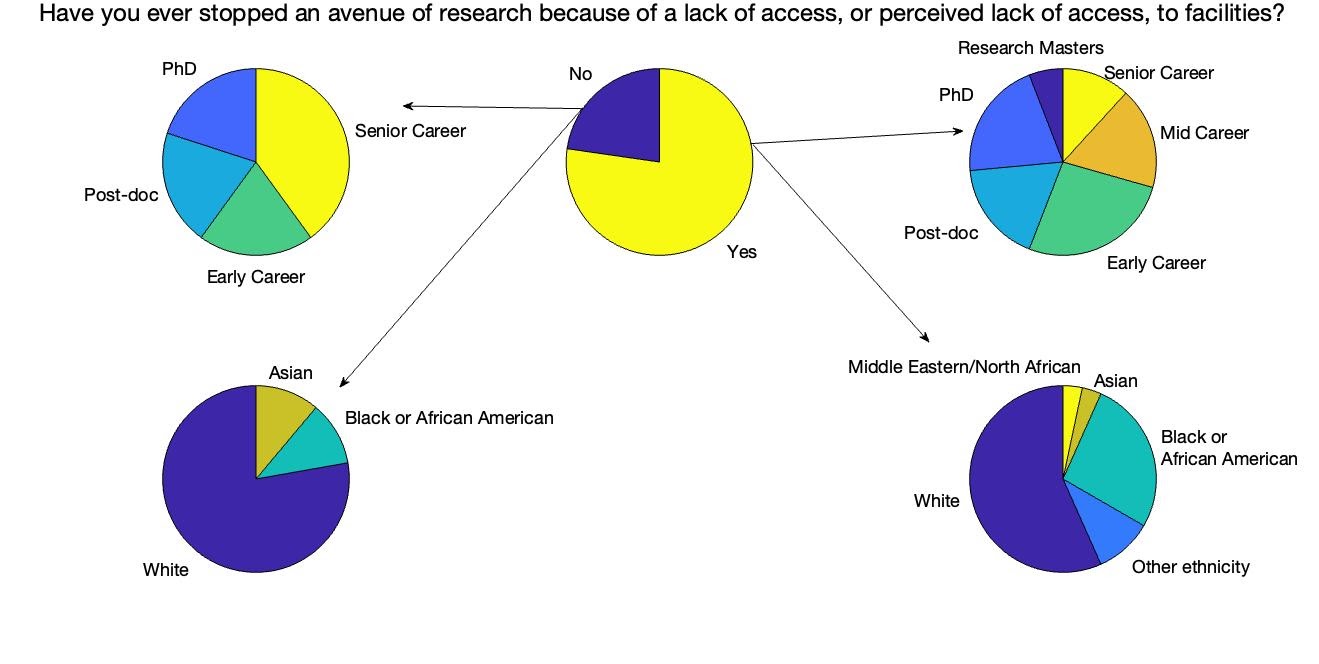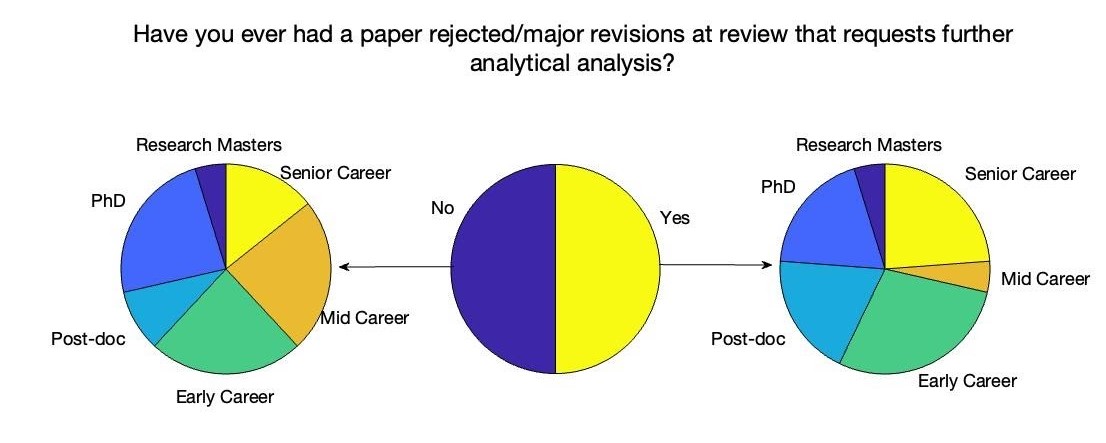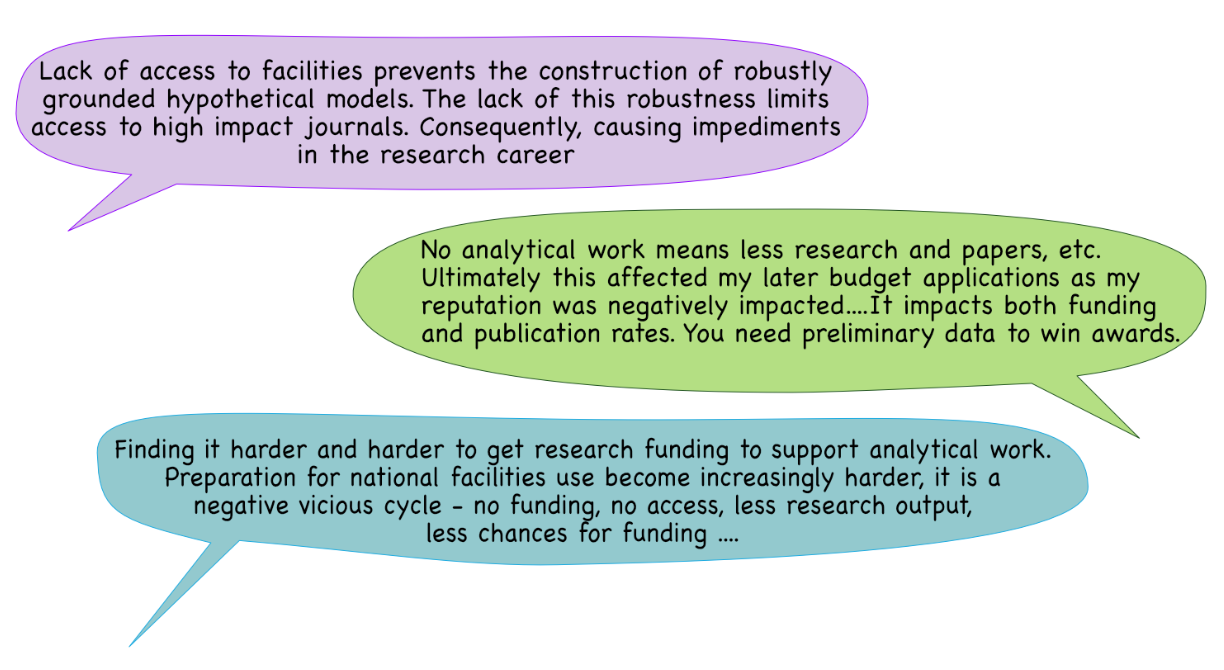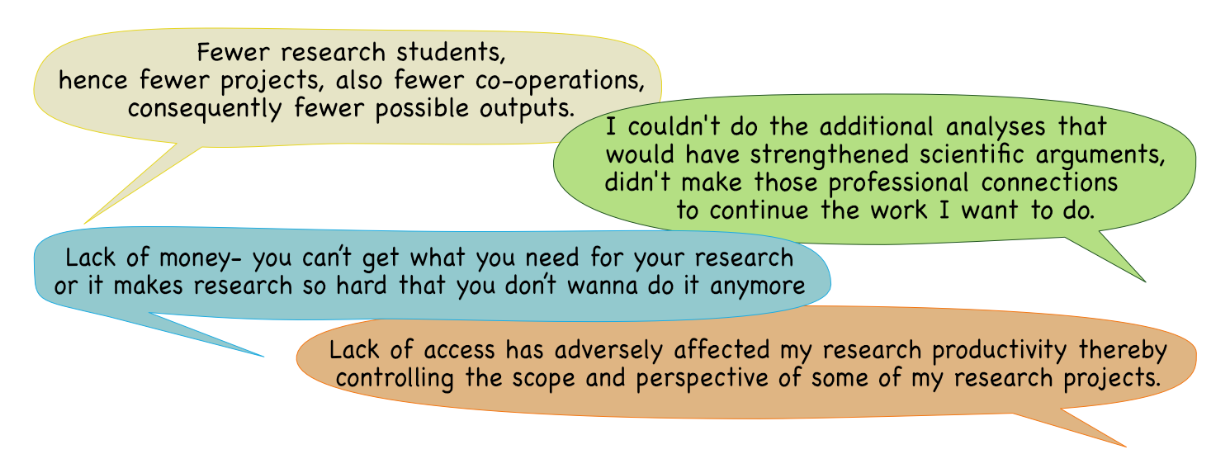The Access Gap: Impact
In our previous post, we identified an ‘access to analytical facilities gap’. Here we explore the impact this has on careers through responses to our online survey and collated testimonies.
When asked “Would you say that a lack of access to analytical facilities has impacted on your research trajectory and/or career?” 13 responded no. However, only 3 respondents reported that they had not had to stop an avenue of research, had a paper rejected, or had to switch research topics because of a lack of access to facilities (all three are white and from either the UK or Australia). A lack of access, or perceived lack of access, to facilities has stopped 77% from pursuing an avenue of research and 71% have switched research topics.


Half of respondents have had a journal publication rejected, with reviews requesting further analyses. Of these, only 35% were able to complete these analyses, going on to publish the paper. Of the remainder, 29% ultimately published the paper without the analyses, meaning the majority were unable to publish their research. Of those who couldn’t publish, we find that they were predominantly from the Global South, and predominantly non-White (47% Black, 20% Hispanic, Latino or Spanish Origin, 7% Asian).

The impact of this is felt throughout an individual’s career, as lack of publications has consequences for research reputation, grant capture and research group building.

We know that awards in geochemistry, which relies on analytical facilities, leadership positions, awards and honours are disproportionately given to white men, to the detriment of women and minority groups (Pourret et al., 2021). Some of the testimonies cited a lack of access to analytical facilities as being very detrimental to their careers.

For some, they have had to discontinue their work entirely.

